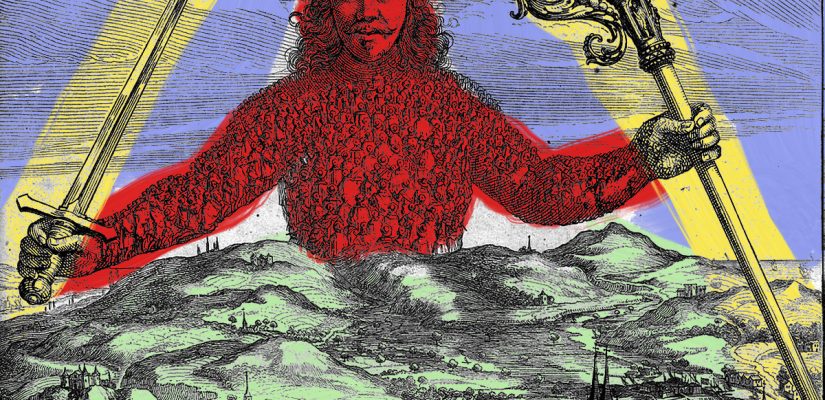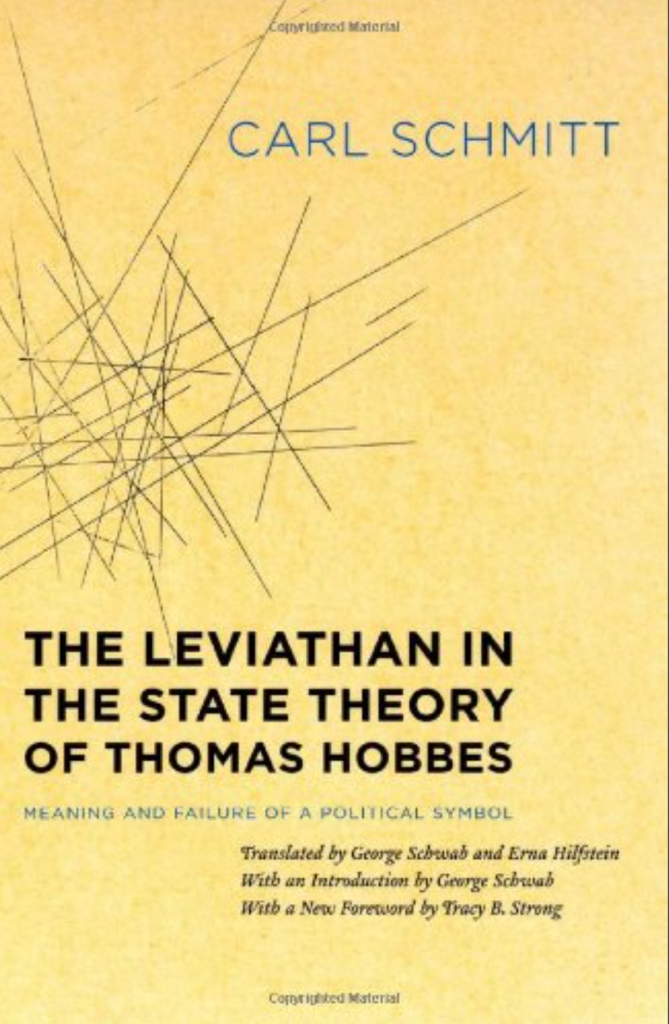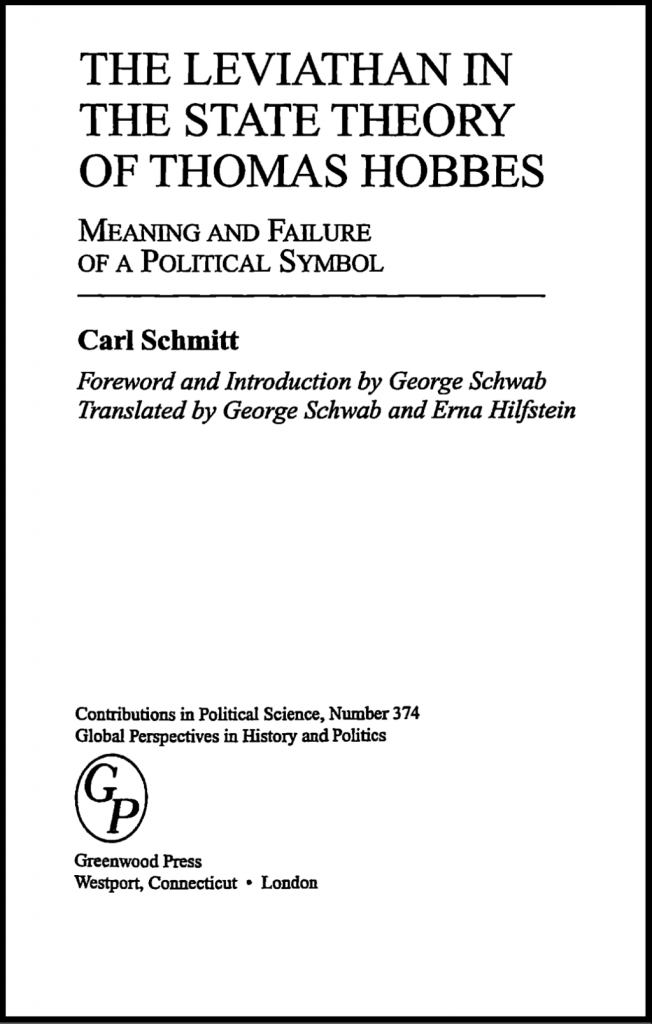
The Symbol of the Leviathan | (dot)philosophy
The Leviathan in the State Theory of Thomas Hobbes, with the subtitle “Meaning and Failure of a Political Symbol”, is a 1938 work by the German philosopher and political theorist Carl Schmitt (1888–1985) that revisits one of his most critical theoretical inspirations: Thomas Hobbes.

«As a symbol of a political entity, the Leviathan is, on the other hand, not just any “corpus” or just any kind of beast. It is an image from the Hebrew Bible, one garbed during the course of many centuries in mythical, theological and cabbalistic meanings». (p. 6)
«The starting point o f Hobbes’ construction of the state is fear of the state of nature; the goal and terminus is security of the civil, the stately (staatlichen) condition. In the state of nature everyone can slay everyone else: “everyone can do this great feat”». (p. 31)
«The expression “mortal god” has led to many misunderstandings and misinterpretations. The confusion is so great because Hobbes used three distinctly different representations for his “god.” In the forefront stands conspicuously the notorious mythical Leviathan, that has assimilated god, man, animal, and machine. Next to it serves a juristically constructed covenant to explain the appearance of one sovereign person brought about by representation. In addition, Hobbes transfers – and that seems to me to be the gist of his philosophy of state – the Cartesian conception of man as a mechanism with a soul onto the “huge man,” the state, made by him into a machine animated by the sovereign-representative person». (p. 31)
«Fear brings atomized individuals together. A spark of reason flashes, and a consensus emerges about the necessity to submit to the strongest power». (p. 33)
«The accumulated anguish of individuals who fear for their lives brings a new power into the picture: the Leviathan. But that affirms rather than creates this new god. To that extent the new god is transcendent vis-à-vis all contractual partners of the covenant and vis-a-vis the sum total, obviously only in a juristic and not in a metaphysical sense. The intrinsic logic of the manmade, artificial product “state” does not culminate in a person but in a machine. Not the representation by a person but the factual, current accomplishment of genuine protection is what the state is all about. Representation is nothing if it is not tutela praesens. That, however, can only be attained by an effectively functioning mechanism of command. The state that came into being in the seventeenth century and prevailed on the continent of Europe is in fact a product of men and differs from all earlier kinds of political units. It may even be regarded as the first product of the age of technology, the first modern mechanism in a grand style, as a machina machinarum in Hugo Fischer’s appropriate formulation. With that state was created not only an essential intellectual or sociological precondition for the technical-industrial age that followed but also the typical, even the prototypical, work ofthe new technological era – the development o f the state itself». (pp. 33-34)
«For Hobbes it was relevant for the state to overcome the anarchy of the feudal estates’ and the church’s right of resistance as well as the incessant outbreak of civil war arising from those struggles by confronting medieval pluralism, that is, power claimed by the churches and other “indirect” authorities, with the rational unity of an unequivocal, effective authority that can assure protection and a calculable, functioning legal system». (pp. 71-72)

